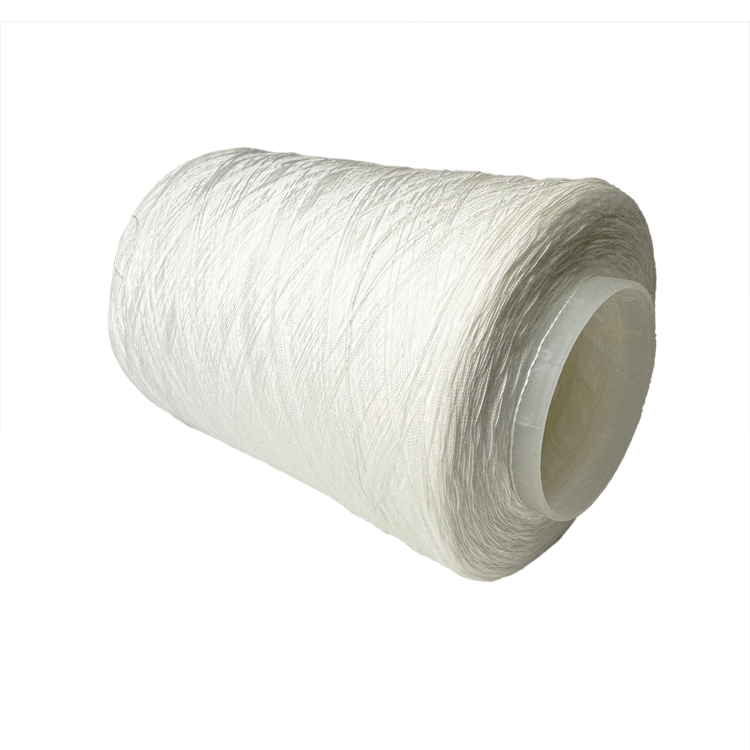Extended Producer Responsibility (EPR) is a critical framework requiring manufacturers to take on the responsibility of their product's entire lifecycle, especially its disposal. In the Nylon66 industry, EPR mandates aim to ensure that companies not only produce but also participate in the recycling process of their products. Countries in the EU and North America have implemented various regulations under EPR to encourage sustainability. For instance, the European Union's revision of the Waste Framework Directive mandates a 55% recycling target for municipal waste by 2025. In Canada, provinces like British Columbia have EPR regulations that hold companies accountable for the collection and recycling of their materials. Evidence of EPR effectiveness is visible in improved recycling rates and increased accountability within industries. Statistics show that regions with stringent EPR policies often see a recycling rate increase exceeding 30%, proving the strategy's efficacy.
Per- and polyfluoroalkyl substances (PFAS) are a group of man-made chemicals that have raised significant environmental and health concerns due to their persistence and accumulation in the environment and living organisms. Regulatory bodies worldwide are imposing stringent restrictions on PFAS in textile manufacturing to mitigate these risks. For example, the European Union has introduced regulations banning PFAS use in food packaging with broad implications for textiles, given their use in stain-resistant and waterproof fabrics. In response, companies involved in Nylon66 production need to adapt quickly. Brands like Levi's have transitioned to PFAS-free production processes, reflecting significant operational shifts. This adaptation not only aligns with regulatory compliance but also enhances their environmental footprint, exemplifying how companies can successfully navigate these restrictions.
The EU's 2030 Recycled Content Requirements are pivotal in transforming the packaging industry by prioritizing sustainability and innovation. Under these directives, Nylon66 producers face significant pressure to integrate recycled materials into their production processes. Companies are mandated to meet specific thresholds of recycled content, necessitating close collaboration with stakeholders, such as suppliers and recycling facilities, to ensure compliance. To meet these ambitious goals, the industry is expected to innovate in sourcing recycled materials. This push for innovation is underpinned by projected market growth statistics, indicating substantial room for growth in the recycling sector, especially concerning embroidery thread and other textiles.
The EU's stringent bans on single-use plastics significantly impact the demand for Nylon66, prompting shifts across various industries. This regulatory change influences demand as manufacturers increasingly seek alternative materials and sustainable designs, pushing the boundaries of traditional practices. Many firms are pivoting towards recycled yarn and threads for sewing as alternatives to Nylon66. Quantitative data highlights the market's responsiveness, with a notable shift towards more ecologically responsible materials. Case studies reveal that consumer trends are equally affected, with environmentally-conscious buyers driving demand for products manufactured from recycled polyester fabric, aligning with a broader global shift towards sustainability.
The 100% Sustainable Poly Corespun Sewing Yarn represents a pinnacle in environmentally conscious textile production. Its specifications highlight exceptional durability and strength, making it ideal for various applications such as fashion apparel, lingerie, and uniforms. This yarn's superior engineering ensures benefits like lower repair rates and increased productivity. The market demand for such materials is driven by eco-friendly developments seeking to reduce waste in textile production. Additionally, the yarn's credibility in sustainability claims is reinforced by its certification to the Global Recycled Standard (GRS), which assures consumers and manufacturers that the product meets rigorous environmental criteria.

GRS (Global Recycle Standard) certification plays a crucial role in the realm of Nylon66 application threads. This certification is vital for ensuring that recycled materials meet high-quality standards and are environmentally friendly. GRS-certified threads significantly impact supply chain management by reassuring consumers that the products conform to global sustainability criteria, which consequently builds trust. A case study in industrial applications reveals successful utilization of GRS-certified threads, improving efficiencies in garment production and reducing environmental impact. Such initiatives are supported by notable advances in industrial practices, which increasingly prioritize sustainability, thus highlighting the importance of certifications in driving positive change.
National environmental protection policies play a crucial role in promoting the development of recycled nylon 66 fully drawn yarn (FDY). By setting strict guidelines and incentives for recycling, such policies encourage manufacturers to adopt more sustainable practices. These frameworks contribute to technological advancements and market adaptations, driving the innovation of FDY. Policies can include mandates for using recycled materials, funding for research into efficient recycling technologies, and certification schemes that validate environmentally-friendly products. Consequently, manufacturers are incentivized to incorporate FDY in production processes, ultimately reducing environmental impact while meeting sustainability goals.
Extended Producer Responsibility (EPR) requires manufacturers to take responsibility for their product's entire lifecycle, including disposal and recycling, to ensure sustainability.
PFAS restrictions in textile manufacturing demand companies to adapt by transitioning to PFAS-free processes, thereby improving regulatory compliance and environmental impact.
These requirements mandate nylon producers to integrate recycled materials into their processes, encouraging innovation and collaboration with recycling facilities to meet sustainability goals.
Samsara Eco has developed an enzymatic recycling process that efficiently breaks down polymers into reusable monomers, offering sustainable advancements over traditional methods.
GRS certification ensures that recycled Nylon66 products meet high environmental standards, enhancing consumer trust and supporting sustainable supply chain practices.